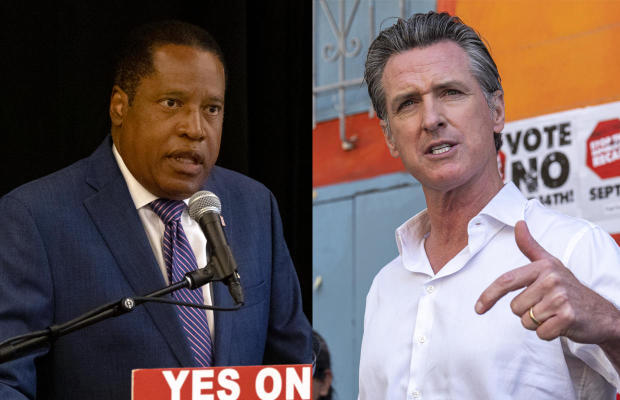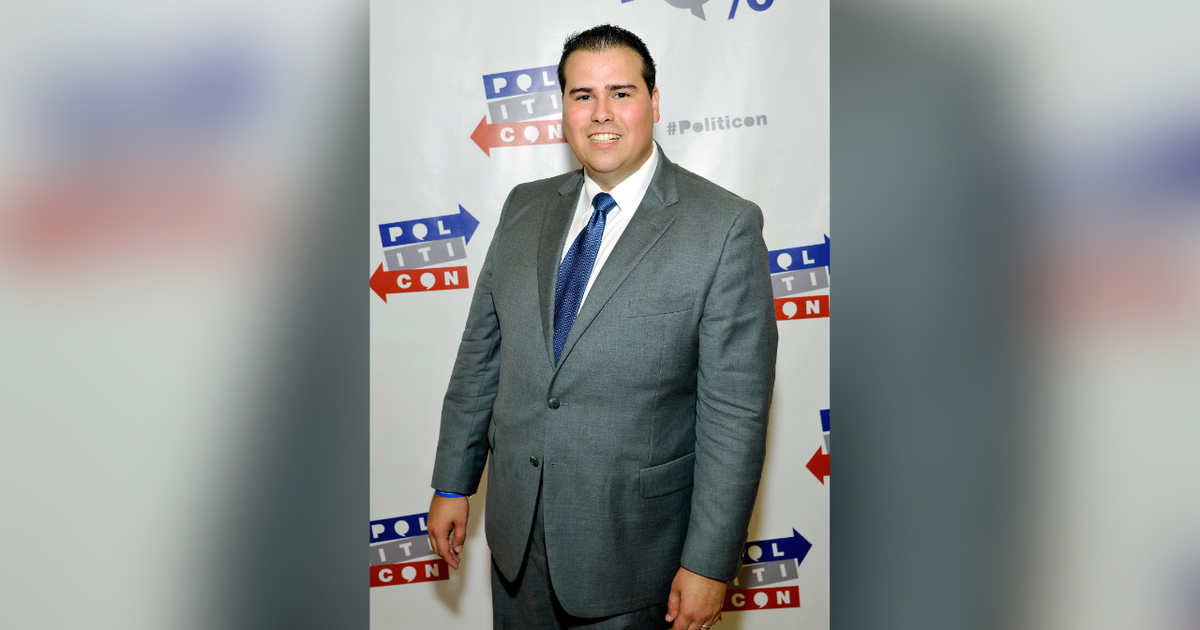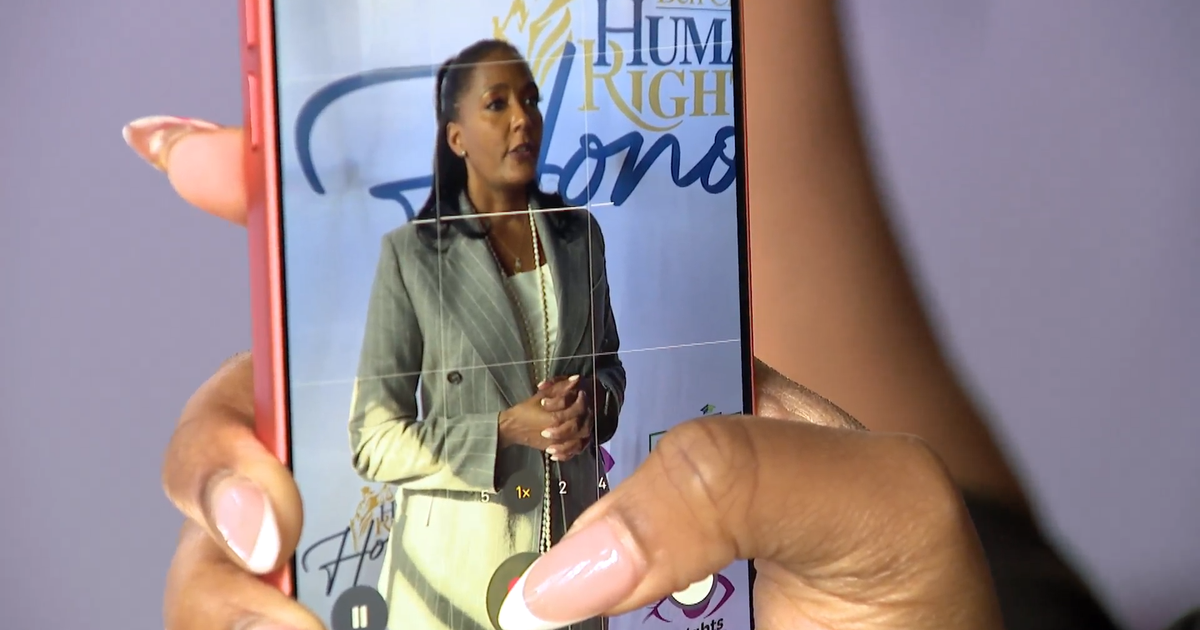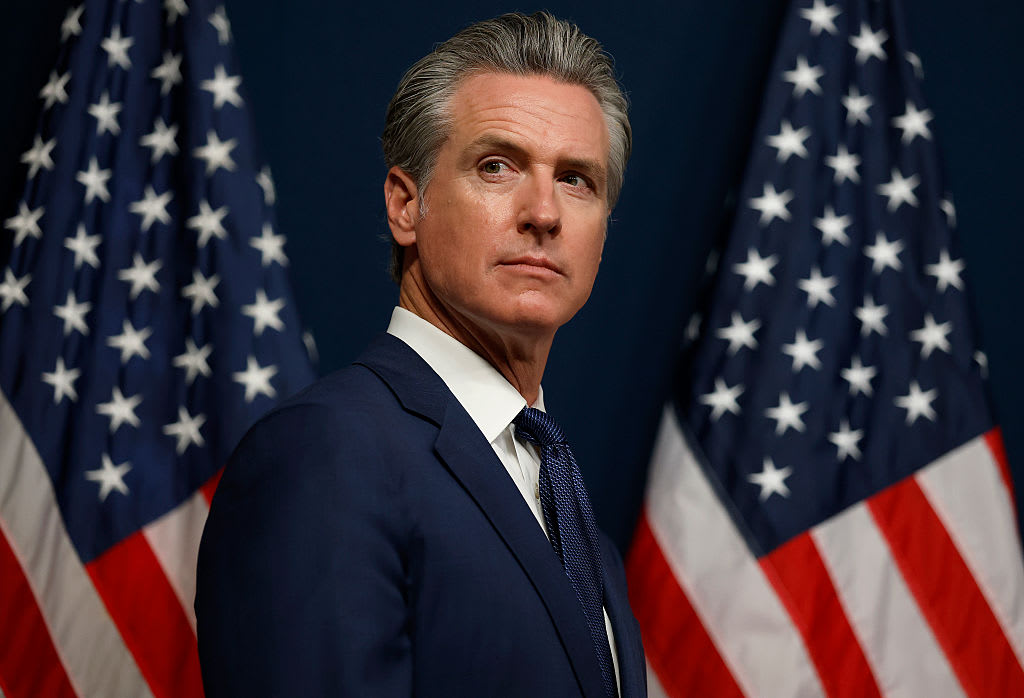Newsom fights for survival in recall vote as campaigns trade barbs on final weekend
California Governor Gavin Newsom's political future faces a critical test Tuesday when voters have their final chance to cast ballots in the recall election aimed at cutting Newsom's first term short.
Democrats vastly outnumber Republicans in California and Newsom has received significant backing from some of his most influential allies in the state and support from top national Democrats, including President Biden, who will be in California Monday to campaign for Newsom. Proponents of the recall are hoping that energy against Newsom's handling of COVID-19 will lead to a stunning political upset in deep blue California.
This is the sixth recall attempt by Newsom's political opponents to unseat the governor, but the first time voters will weigh in on the issue. It's just the second time a California governor faces a recall election. In 2003, voters recalled Democratic Governor Gray Davis and replaced him with Republican Arnold Schwarzenegger.
More than 7.2 million ballots have been returned so far, according to the California Secretary of State's office. All 22 million registered voters were sent ballots in the mail.
Polling over the summer indicated that the race was close among the most likely recall voters, but in the closing days the momentum appears to be on Newsom's side. A Berkeley IGS poll from late July showed 50% of likely voters intended to vote no on the recall, while 47% planned to vote yes. A CBS News poll from early August also showed a close race among likely voters, largely driven by pro-recall enthusiasm.
But in recent weeks as the Delta variant raged around the country, polls started moving towards Newsom. A Berkeley IGS poll released on Friday showed the "no" vote leading the "yes" vote 60.1%-38.5% among likely voters. CBS News has learned that internal Republican polls show the "no" vote leading by 8 to 16 points.
Newsom has made his pandemic response the center of his campaign in the final weeks of the race. He consistently contrasts how he's been handling the pandemic with the plans of his opponents. One of the leading candidates opposing Newsom, Republican Larry Elder, opposes measures like mandating masking or vaccinations for children.
Newsom has also maintained a sizable fundraising edge over his opponents, allowing him to bombard the airwaves with ads urging voters to reject the recall. The main committee opposed to the recall raised more than $66 million through the end of August and entered the final stretch with more than $15 million dollars in the bank.
Since his entry in late July, Elder, a conservative radio talk show host, has led replacement ballot candidates in the polling. He's been the lead fundraiser among the candidates, raising more than $13 million.
Newsom's campaign has tried to make Elder the face of the recall movement, highlighting his comments about COVID-19 and controversial statements about women.
"If we don't turn in the ballots and turn out the vote on September 14, Larry Elder will be the next governor of the state of California," Newsom said Saturday at a campaign event.
The governor has argued that Elder's standing in the polls shows that former President Trump and his movement are on the ballot.
"Donald Trump was defeated last November but Trumpism hasn't been defeated," Newsom told CBS News after a campaign event on Sunday. "You're seeing that all across the United States and it's come here to the state of California, the fifth largest economy in the world. I'm very mindful of that."
Elder told CBS News that Mr. Trump is "irrelevant to this election" and he believes voters are upset with Newsom's handling of the pandemic, crime and wildfires.
"I've traveled up and down this state now for two months campaigning to replace Gavin Newsom. Not a single person has asked me about Donald Trump," Elder said. "They ask me about crime. They ask me about the rise in homelessness. They ask me about the poor quality of education."
Elder has also recently made baseless claims of fraud in the election and suggested that there may be "shenanigans" in the recall election. He has also said that his campaign is ready to file lawsuits if necessary and is encouraging people to report allegations of voter fraud on his website.
"I'm hopeful that we don't have any problems in the election," Elder said. "I believe that so many people are going to vote to recall him, there won't be any question about the outcome of this election."
But Elder's candidacy has worried some of the recall's top activists.
"I'm very concerned about his candidacy because all the attention now has gone to him," said Randy Economy, an original spokesperson for the recall effort. "When you're a talk radio show host, everything that comes out of your mouth is your money. You're paid to talk. Therefore you leave a legacy of comments and positions and even controversy."
Orrin Heatlie, a retired Republican sheriff's sergeant who was one of the founders of the recall, endorsed state Representative Kevin Kiley.
Some of the other Republicans running to replace Newsom remain hopeful that voters are still making up their minds and believe that Californians want a more moderate leader.
Businessman John Cox, who lost to Newsom in 2018 by more than 20 points, said he believes voters are waiting until this weekend to decide who they want to replace Newsom and believes they're more interested in a moderate Republican with a business background. Cox said Newsom has tried to scare voters by making the race about Larry Elder and it's "regrettable" that Elder has made that easier "because there are so many things that need to be fixed in the state."
"I hope that the voters recognize that there's somebody out there who will fix the problems of the state," Cox said. "Is Gavin Newsom running around the state saying he's doing a great job on these things? Absolutely not. He's running around the state trying to scare people and saying that we're all going to die if we get a Republican businessman as governor or a Republican governor, period. I think that's just demagoguery in its fullest form."
"There's no doubt that (Larry Elder has) been running a campaign that has not been one that seeks to bring people together," said former San Diego Mayor Kevin Faulconer. "You can't win like that. Our campaign, on the contrary, has been all about 'hey, we're going to actually get in and solve the problems that we know Californians want solved.'"
Joshua Spivak, an expert and author on recall elections, said the three governors that had recalls saw percentages that were within three points of their prior election.
In 2002, Davis, a Democrat, won his election with 47% of the vote. His numbers dipped by 3 points when he was recalled in 2003. Wisconsin Republican Governor Scott Walker attracted 52% support in his 2010 election, and 53% when he defeated the recall in 2012. North Dakota Governor Lynn Frazier got 51% in his 1920 re-election, and 49% in his 1921 recall.
But Newsom won his 2018 election with 61.9% of the vote, a record for any Democratic gubernatorial candidate in California
"Everybody's been thinking that this is going to be super tight. But you may want to look at the blowout possibilities," Spivak told CBS News.




